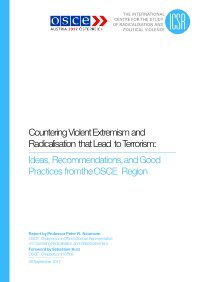By HM Inspectorate of Probation, Inspectorate of Constabulary and Fire & Rescue Services and HM Inspectorate of Prisons (UK)
His Majesty’s Inspectorate of Probation has led an inspection, alongside HM Inspectorate of Constabulary, Fire & Rescue Services (HMICFRS), and HM Inspectorate of Prisons – looking at the work of the Probation Service’s National Security Division (NSD) and multi-agency arrangements for the management of terrorist offenders in the wake of terrorist attacks.
In response to terrorist attacks in 2019 and 2020, by known terrorist offenders who were subject to licence supervision, the NSD was created as a separate division of the Probation Service, working alongside police Counter Terrorism Nominal Management (CTNM) arrangements. Together with existing prison and probation services, these bodies are responsible for managing those convicted of terrorist offences or suspected of potential terrorist activity, even if they have no related convictions.
What we found
This inspection looked at the management and progress of the strategy to supervise these offenders. It found:
NSD, probation, police and prison services worked well together and are approaching managing counter terrorism cases collectively
supervision within the community was robust overall, balancing rehabilitative needs with tight risk management
probation practitioners within NSD were well trained specialist officers, holding a small and restricted caseload, delivering high quality case assessment and supervision
terrorist offenders were subject to additional oversight throughout their sentences
the arrangements to protect others from harm from terrorist cases in custody were effective
there has been significant financial investment to improve services dealing with counter terrorism, and staffing levels were appropriate
prison governors and directors were clear about the terrorist risk posed in their prisons and were actively managing this
leadership across the NSD and CTNM was strong, and there were clear lines of accountability, enhanced by national multi-agency governance arrangements.
Manchester: His Majesty’s Inspectorate of Probation, 2023. 65p.












